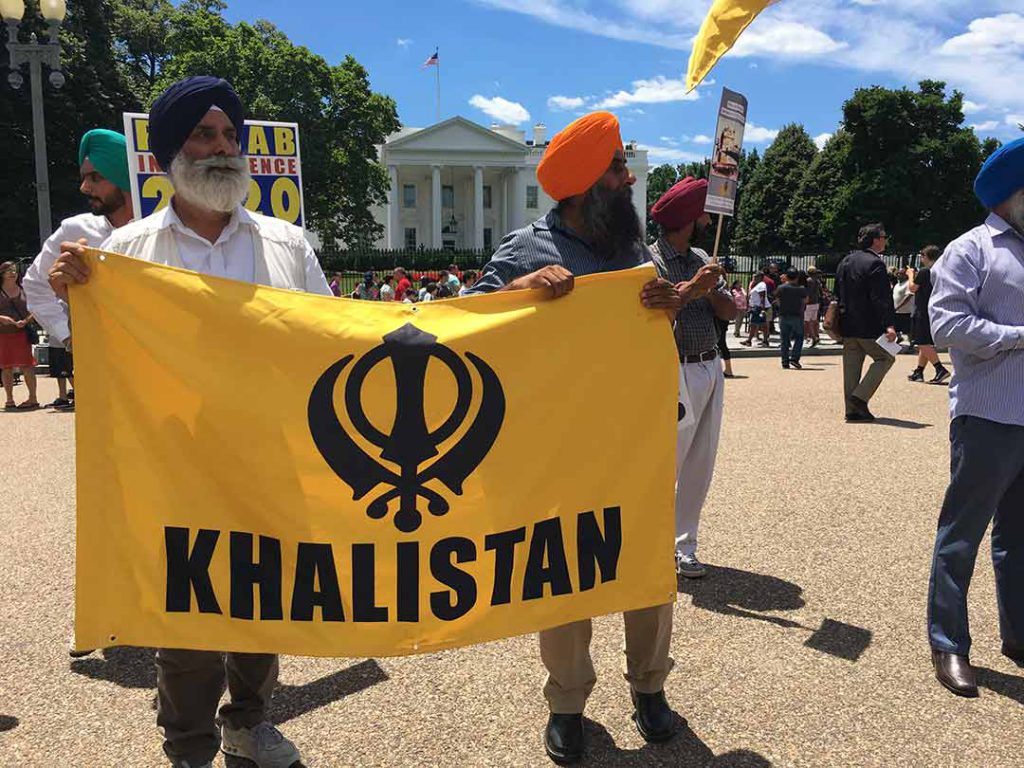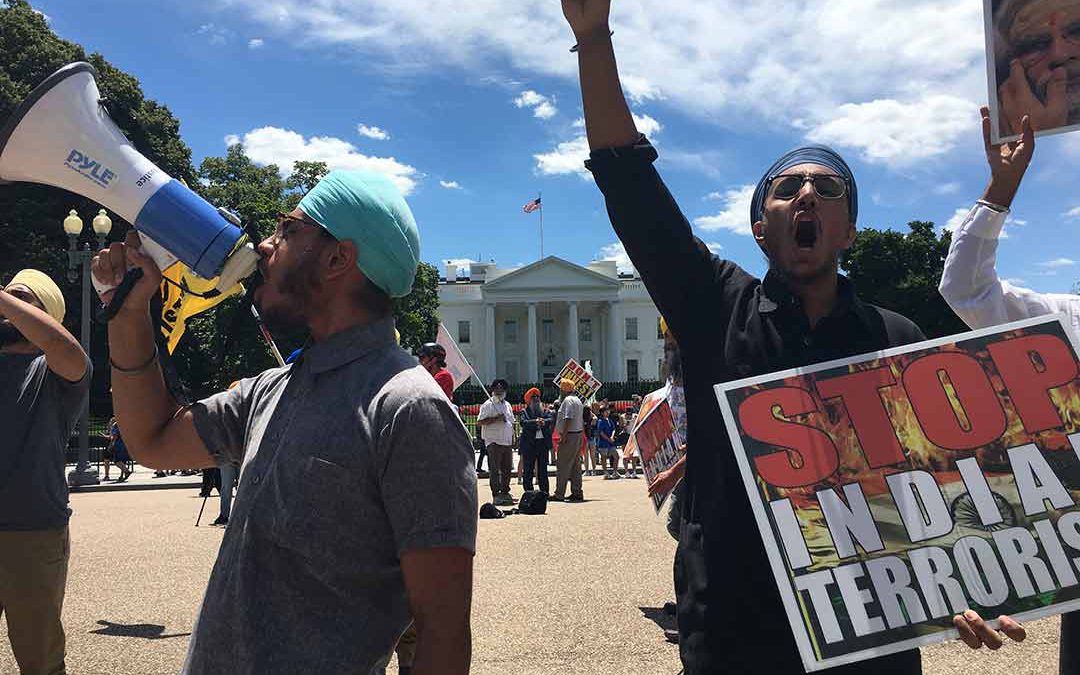WASHINGTON – As Indian Prime Minister Narendra Modi met with President Donald Trump in the White House Monday, Sikh protesters outside demanded that he allow a referendum on giving them their own country while another group called for a United Nations-led vote on independence for Kashmir.
The Sikhs who immigrated to the United States from the Punjab region of India want a referendum on starting their own country, Khalistan. According to Washington businessman Balwinder Singh Chatha, 53, Modi’s government wants to make India a Hindu state and Sikhs want no part of it.
“We demand full freedom, and we want Khalistan,” he said. “That’s our country. That’s the only solution.”

Protesters stand with flag for their hopeful state of Khalistan outside the White House (MEDILL/Jacob Rogers)
Mehtab Singh, a 24-year-old Indian-American, argued that a “referendum is a democratic right.” But he stressed he’s not anti-Hindu.
“Our fight isn’t against Hindus,” he said. “Our fight is against the corrupt politics.”
The World Kashmir Awareness Forum, lead by Dr. Ghulam Nabi Fai, protested nearby, saying the Forum members want to remind Trump of his offier in October to help mediate a settlement among Kashmir, India and Pakistan to determine Kashmir’s status.
Trump described Kashmir and India-Pakistan relations as a “very, very hot tinderbox” and if they wanted he “would love to be the mediator or arbitrator.” According to Fai, this sort of third party mediation is critical for a fair election, whether the mediator is the United States or the United Nations.
“It has to be decided by an election,” he said. “An election not conducted by India and Pakistan, but [an] election conducted by the United Nations … so that people have no external intimidation.”
This worry of intimidation is well rooted in history and recent events. Last year, Indian forces in Kashmir fired nonlethal pellets into crowds of protesters, blinding many of them. In 2002, when Modi was the chief minister of Gujarat, a state on the west coast of India, sectarian violence erupted after a Muslim mob attacked a Hindu train. It caught fire and killed 59 people. The resulting violence ended with over 1,000 Muslims dead and many more displaced.
In 2012, a Human Rights Watch report stated that “authorities in India’s Gujarat state are subverting justice, protecting perpetrators, and intimidating those promoting accountability 10 years after the anti-Muslim riots that killed nearly 2,000 people.”
Silence from Modi on these issues and others, like forced conversions to Hinduism, trouble Indian immigrants like Singh.
“He’s not telling them to stop,” Singh said.

